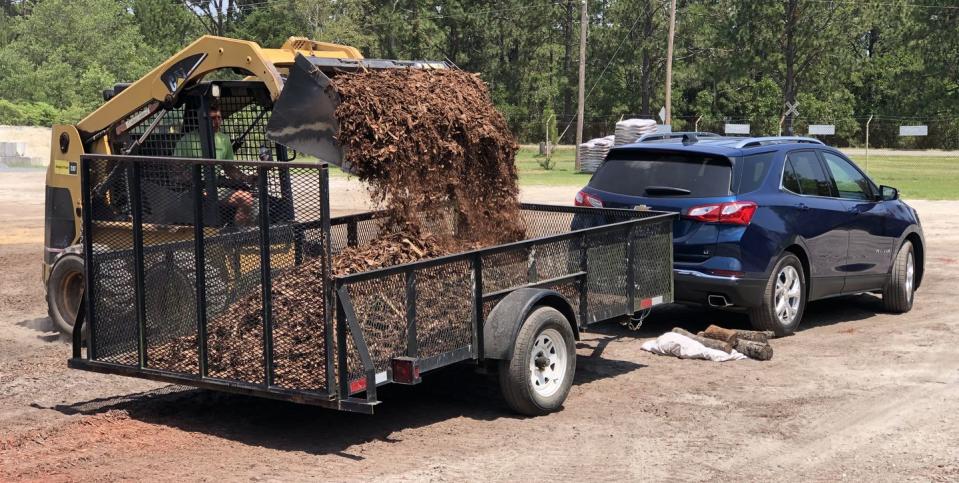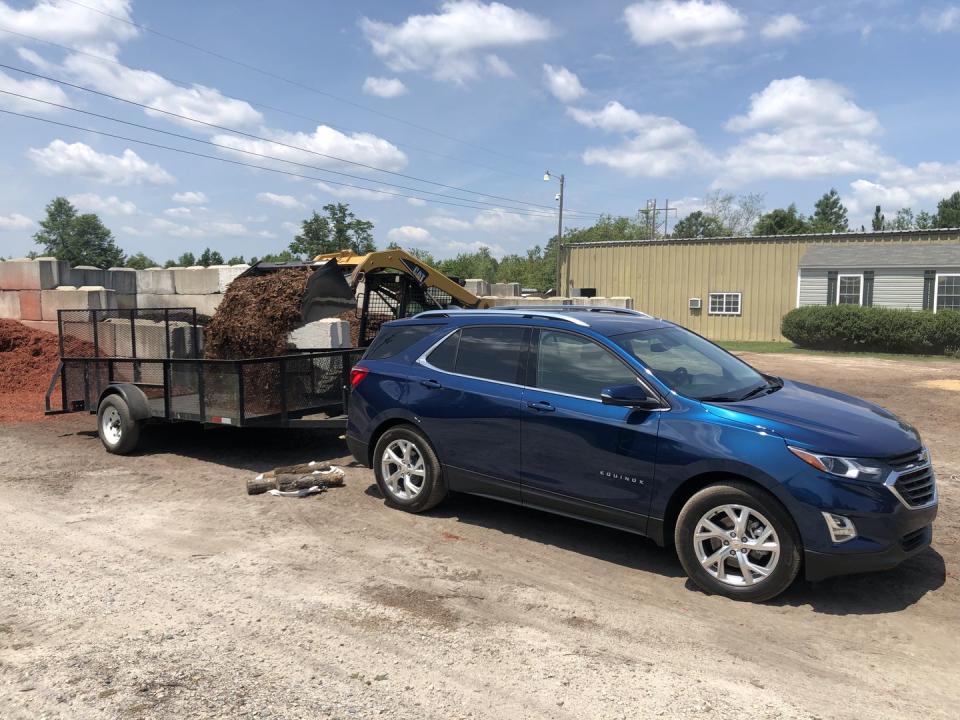Can You Tow with a Front-Wheel-Drive Vehicle like the Chevy Equinox?

The U.S. is unique in that we tend to think of towing as the domain of trucks, specifically trucks of the overkill heavy-duty variety. But elsewhere in the world, the citizenry tows its trailers with whatever's handy, which often means a small front-wheel-drive station wagon. Check out the caravanning scene in Britain—plenty of RVs and nary a Cummins Ram to be found.
Here, we predominantly tow with trucks, and if not one of those, then an AWD crossover. The latter category tends to top out around 5000 pounds of capacity for a car-based model, with the stand-alone platforms (like the Dodge Durango) offering stouter ratings beyond 7000 pounds.
But what if you don't need to tow anything that big? What if your towing needs involve a small boat, or a utility trailer that occasionally sees an ATV or a load of lumber?
In that case, you could be fine with a front-wheel-drive crossover, or even a car (hey, the old Volvo C30 was rated to tow 2000 pounds). You just have to be mindful of the challenges that towing presents to a front-driver.
A Healthy Challenge

I don't usually tow with front-wheel-drive vehicles, since most companies don't tend to spec front-wheel-drive cars with tow packages (and my own tow vehicles are 4WD and AWD, for a reason I'll get to in a moment).
But the Chevrolet Equinox with the 2.0 turbo is rated to tow a rather robust 3500 pounds in front-wheel-drive guise, so I decided to use one of those for some mundane utility-trailer landscaping work to see how it fared. Incidentally, 3500 pounds seems to be the industry's standard limit for FWD vehicles. The Honda Ridgeline, the only FWD pickup truck, is also rated at 3500 pounds in FWD trim but can tow 5000 pounds with AWD. The front-wheel-drive towing champion, as far as we can tell, is the Nissan Pathfinder, which carries a 6000-pound tow rating whether it's FWD or AWD.
I hooked the Equinox to my 12-foot trailer and headed to my favorite neighborhood mulch depot to grab six scoops of bark. Sirus, the proprietor of the establishment, estimated that those six scoops probably equaled about 2000 pounds. Add the weight of the trailer, and I was still comfortably below the Equinox's tow rating, while giving it a healthy challenge.
Simple Physics and Brake Specs
The first thing you need to be aware of when using a FWD tow rig is that tongue weight—the amount of the total trailer weight that’s up front, at your hitch—assumes extra significance thanks to good old Newtonian physics.
It's pretty simple: push the rear of the vehicle down and the front goes up. And if your front end is where the propulsion happens, that's not helpful. So when Sirus loaded the trailer, he was extra careful to keep the mulch over the axle, balancing the load. If you need a handy way to keep this consideration in mind, remember that "Isaac Newton" is an anagram for "I Can Tow Sane." His parents surely knew that when they named him.
The second thing to remember is that FWD vehicles tend to be on the compact side, while smallish trailers tend not to have brakes. See where I'm going with that? Propulsion aside, if I were driving a 7000-pound truck equipped with brake rotors the size of an extra-large pizza, stopping an extra 2000 pounds is no big deal.
But the industrious Equinox weighs just under 3500 pounds, meaning that you could potentially be tasking its brakes with double their normal workload. Even with my load of mulch, I immediately noticed that I needed to leave a lot more room to slow down.
It's All about Weight Transfer
Finally, back to the physics side of things: with front-wheel drive, you need to think about weight transfer. You already have the trailer's tongue weight decreasing the normal force on the front tires, and accelerating does the same thing. So beware of accelerating from a stop on an incline. As happens, you know, on a boat ramp.
My occasional towing involves a 3500-pound boat, which is one big reason why I avoided buying a front-wheel-drive vehicle. When you're on a slippery boat ramp with a heavy item dragging you back toward the water, that's a bad time for your two drive wheels to go all feathery. It's also a good time to have low range, if you've got it—and front-wheel-drivers never do.
So don't be afraid to hook up a camper or a utility trailer to a front-driver. The Equinox’s 260 lb-ft of torque shrugged off six scoops of mulch like it was no big deal. But if you're hauling a boat, you probably want to double your drive wheels. Or at least have them at the back, where Isaac Newton intended.
You Might Also Like

 Yahoo Autos
Yahoo Autos 